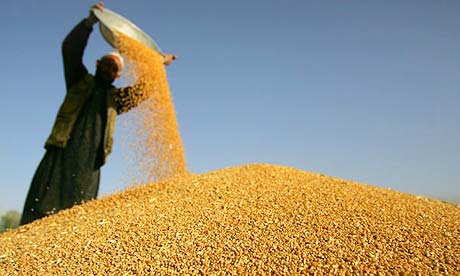Is the global economic situation having an impact on poppy eradication in Afghanistan? Afghan farmers are capitalising on soaring food costs by growing wheat instead of poppy crops, with the fall in heroin prices further fuelling the switch. This comes at a time when the price of a tonne of wheat in Afghanistan has almost trebled this year, causing acute food shortages.
This may be the case in some regions, but Helmand may be off limits because of instability while some farmers may be put off by difficulties in getting their crops to market as roads are dangerous with bandits roaming the countryside.




